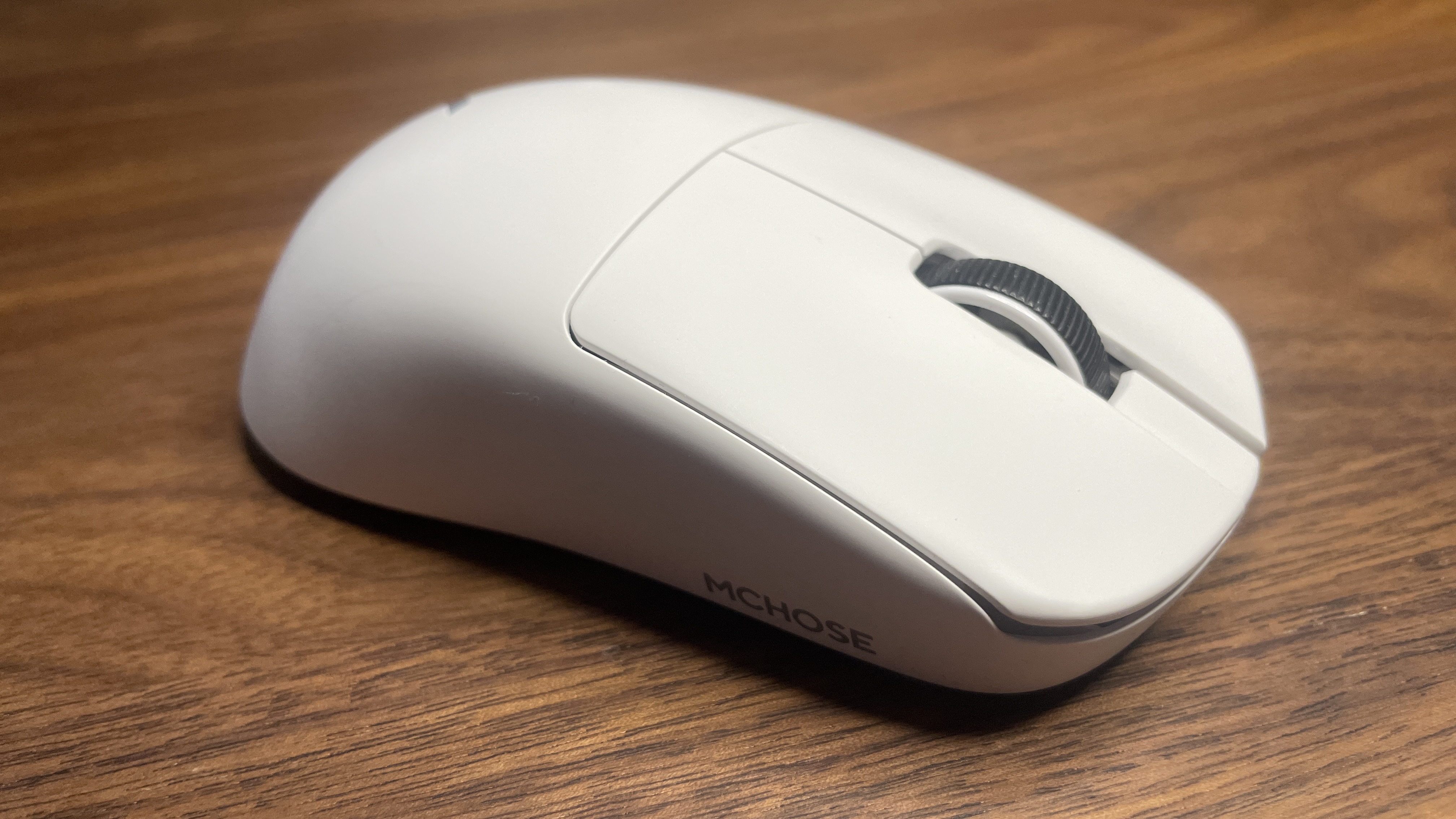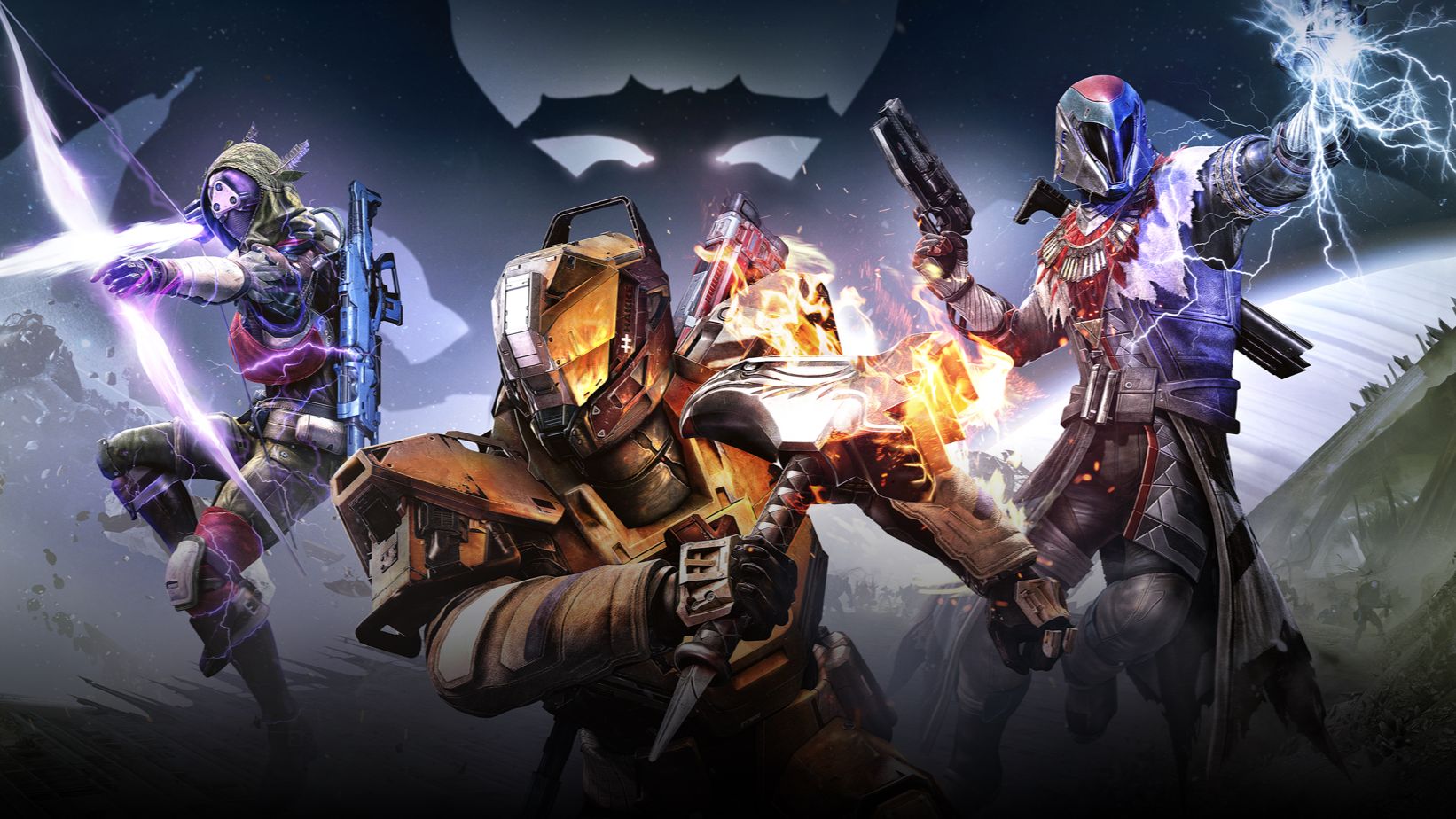
Chris Thursten: I love Destiny. It’s come to occupy the place in my life previously occupied by, variously, Diablo 3, Wildstar, Diablo 3 again, Guild Wars 2, Star Wars: The Old Republic, and World of Warcraft—all PC games. For the first time, my MMO itch is being scratched on console. This isn’t down to the platform, however. Having emerged from a rocky first year better than it’s ever been, Destiny is now one of my favourite MMOs ever. I’d love to see more PC games embrace the things it does so well—at present, Warframe is the only game I can think of that comes close.
Tom Senior: I wish I hadn’t checked, but I can say I’ve played more than 250 hours of Destiny. We don’t know if it will come to PC, but Destiny owes a debt to a number of PC classics. I see Diablo when loot tumbles out of defeated bosses (in the form of glittering techno-matter crystals called Engrams). Missions and strikes remind me of the small-group instanced questing of Guild Wars 1, and the public events of Guild Wars 2.
Destiny takes these influences and turns them into something fresh. It’s fascinating to see developers influence each other across the console/PC divide, and this is one of those cases where a venerable PC genre like the MMO can learn a few things from Bungie's shooter. Here are five of those things for your consideration.
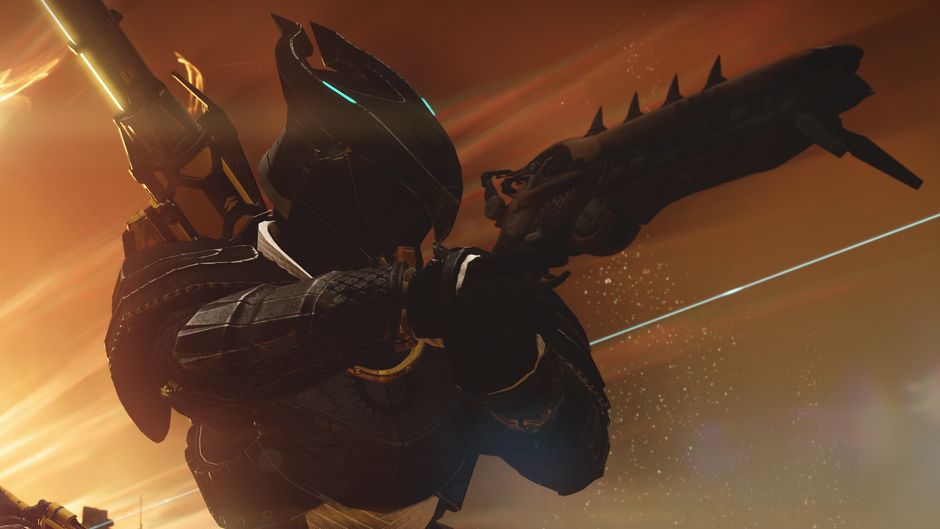
It would still be brilliant if it wasn’t an MMO
Tom: We’ve seen many attempts to merge the progression systems and persistent open worlds of MMOs with action genres. The industry has known for ages that technology ought to allow for more advanced interactions than the complicated taskbar manipulation of traditional MMOs. Fallen Earth, Global Agenda, Huxley, Defiance and more have tried it; Destiny nails it.
It is a damn fine shooting game. Destiny’s guns look and sound magnificent, and Bungie finds a way to bloodlessly sell the impact of your shots. Cabal spacesuits depressurise as you pop their helmets, venting grey gas into the atmosphere; the glowing, gaseous ether that sustains the Fallen sprays out of them in white gouts; members of Destiny’s implacable horde-species, The Hive, crumble into burning ash. Bungie built an amazing FPS, and everything else—the world building, loot and levelling systems—provides context for that core activity.
If there’s anything MMOs can take from Destiny, it’s the lesson that moment-to-moment interactions should feel amazing, whether it’s a third-person combat game, a shooter, or even an MMO RTS. If it still feels good to blast enemies after 250 hours, then you’ve got something. Everything else is secondary.
Chris: Something that I think is very clever and very important in Destiny’s design is the way projectiles work. With a few exceptions, players use hitscan guns—you point, you kill. On the other hand, PvE enemies almost never have them. They fire big bright bolts of energy that you’re encouraged to dodge, flee from, and so on. There are interesting twists on this formula: homing bullets, orbs that make you blind, but the net result is a power differential that places damage mitigation squarely in the players’ hands. Maximising your damage output while minimising your damage intake isn’t a question of standing there wearing the best armour: it’s about being handy with the gun while on the move.
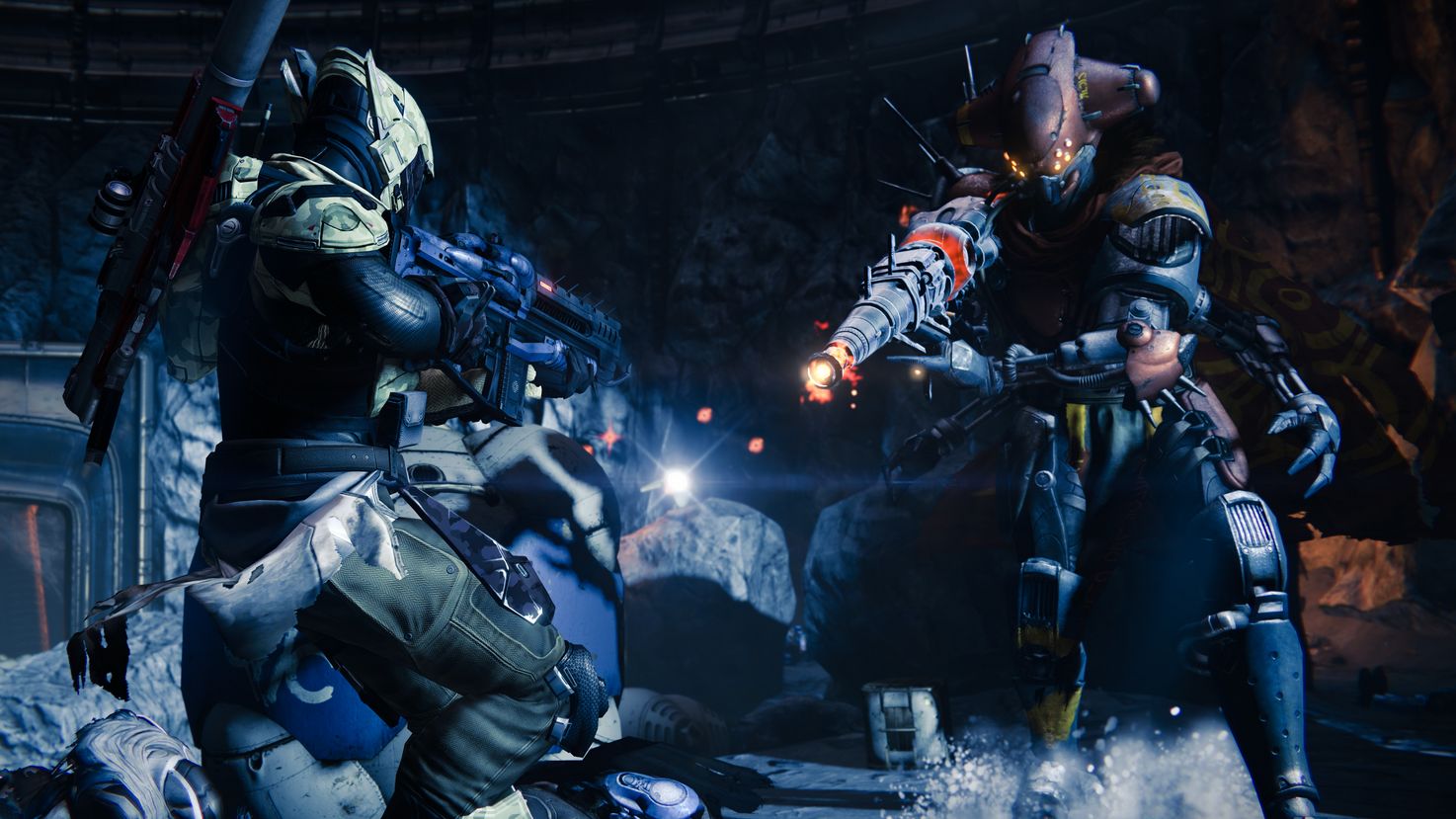
Weapons aren’t just a bundle of numbers
Chris: Destiny’s successes as a shooter play directly into its gear system. In a traditional RPG-derived MMO you might be impressed by how much damage a new piece of gear puts out, but that feeling rarely translates into a substantially different playstyle. When a unique item modifies your abilities in some way it might alter your rotation of abilities, but it’s unlikely that you’ll be asked to develop an entirely new set of skills.
Destiny’s guns don’t work that way. They feel like devices, with subtle alterations in rate of fire, impact, shot distribution, and recoil pattern giving them a ‘signature’ that’s hard to pinpoint but is palpably real in your hands. Player preferences are just as important as raw stats, particularly in level-adjusted PvP. For example: I love sniper rifles, but have found that I’m better with ones that have a reasonably good rate of fire, high stability, but low auto-assist: I find reticles that snap to enemies’ heads too readily to be distracting. Given a broad range of gear to choose from, I’ve carved out a niche that’s as much about who I am as it is about which stuff is objectively ‘best’.
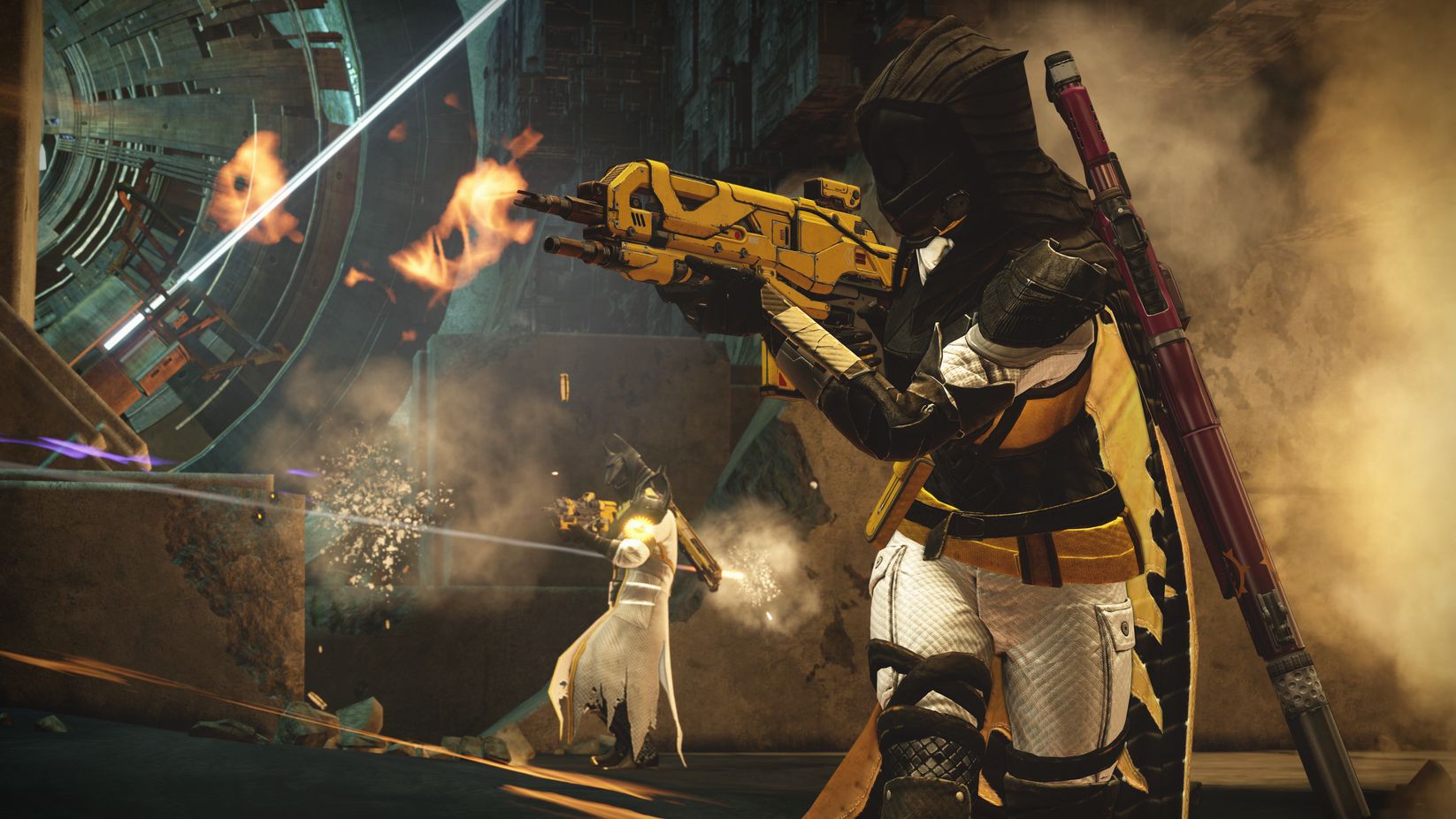
An easily-reached endgame with lots of lateral progression
Chris: I’ve been playing MMOs for eighteen years, and I think it took me ten years to finally become the kind of player who could get to, and stick with, an endgame. Traditionally, MMOs expect you to level for tens if not hundreds of hours to get to the point where you can start really optimising your character. In Destiny, the endgame starts when you finish the campaign - about 15-20 hours in, including the expansions. From that point onwards you are thrust onto a gear-based progression system that is broad rather than deep.
There are raids, but they’re not wholly mandatory (they’re brilliant, mind.) You can find high-level or rare gear by sheer luck, by running playlists of ‘Strikes’ (see also: dungeons), by playing competitively, by participating in public events, or by saving up enough tokens to buy them directly. After a series of updates to the system, it’s become very fair and transparent. You don’t feel forced to conform to a particular playstyle to get decent stuff, and it’s possible to play at the highest level while using weapons and equipment that you actually like—and that you enjoyed earning. The traditional MMO problem of friends leaving each other behind is less pronounced because, although all of my friends play the game differently, we’ve all reached the point where we can raid together.
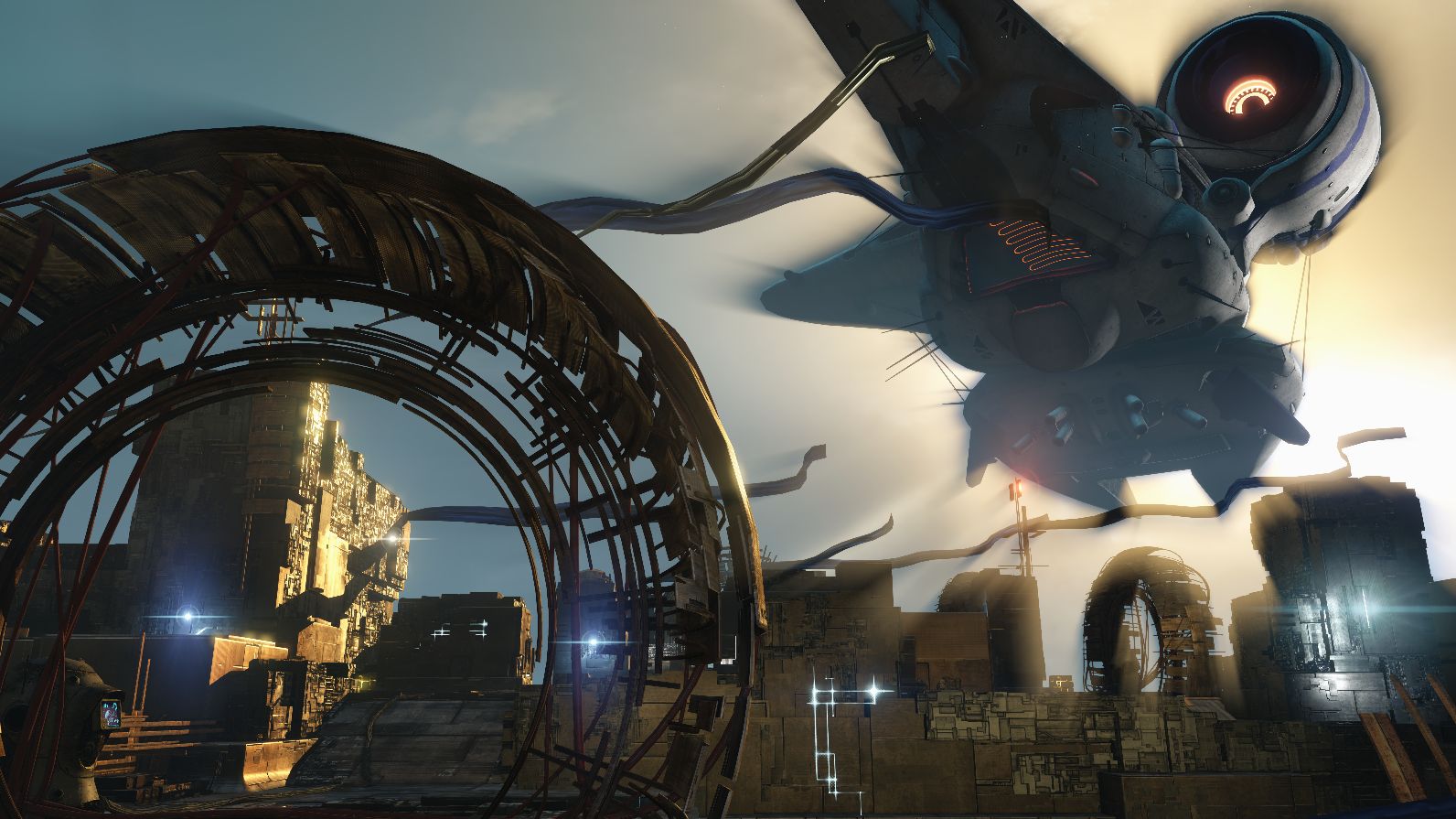
A range of weekly things to look forward to
Tom: MMOs are great at events, but few have the attractive rhythm of Destiny’s weekly cycle. Destiny is a lifestyle game. You play it for an hour every day or so to claim daily mission and PvP match rewards, and maybe run a strike with friends. Between those sessions you check Destiny The Game Reddit and Bungie.net every day for Warlock puns, skill-shot videos, and to see if new secrets have been discovered.
Destiny’s schedule of regular challenges encourages ongoing loyalty, without demanding huge amounts of time investment. As well as dailies, you have the weekly Nightfall, which cleverly uses rule modifiers to refresh strikes, and add challenge. You might have to assassinate the Flayers on Mars with no radar, or face down stronger hordes with a boost to weapon damage. Bounties encourage further exploration, encouraging you to switch weapons and assemble a varied armoury that interacts favourably with your three subclasses (which you can switch between at will, brilliantly).
Bungie uses Destiny's regulars to create talking points for the community. Quest lines for desirable exotic weapons are quietly uploaded and embedded in old strikes and missions. The Paradox quest in the Vault of Glass recently allowed players to reach a distant teleportation gate that the community has been speculating about since year one. Bungie adds surprise and a sense of adventure to places players have visited hundreds of times. MMO zones could use a lot more of that.
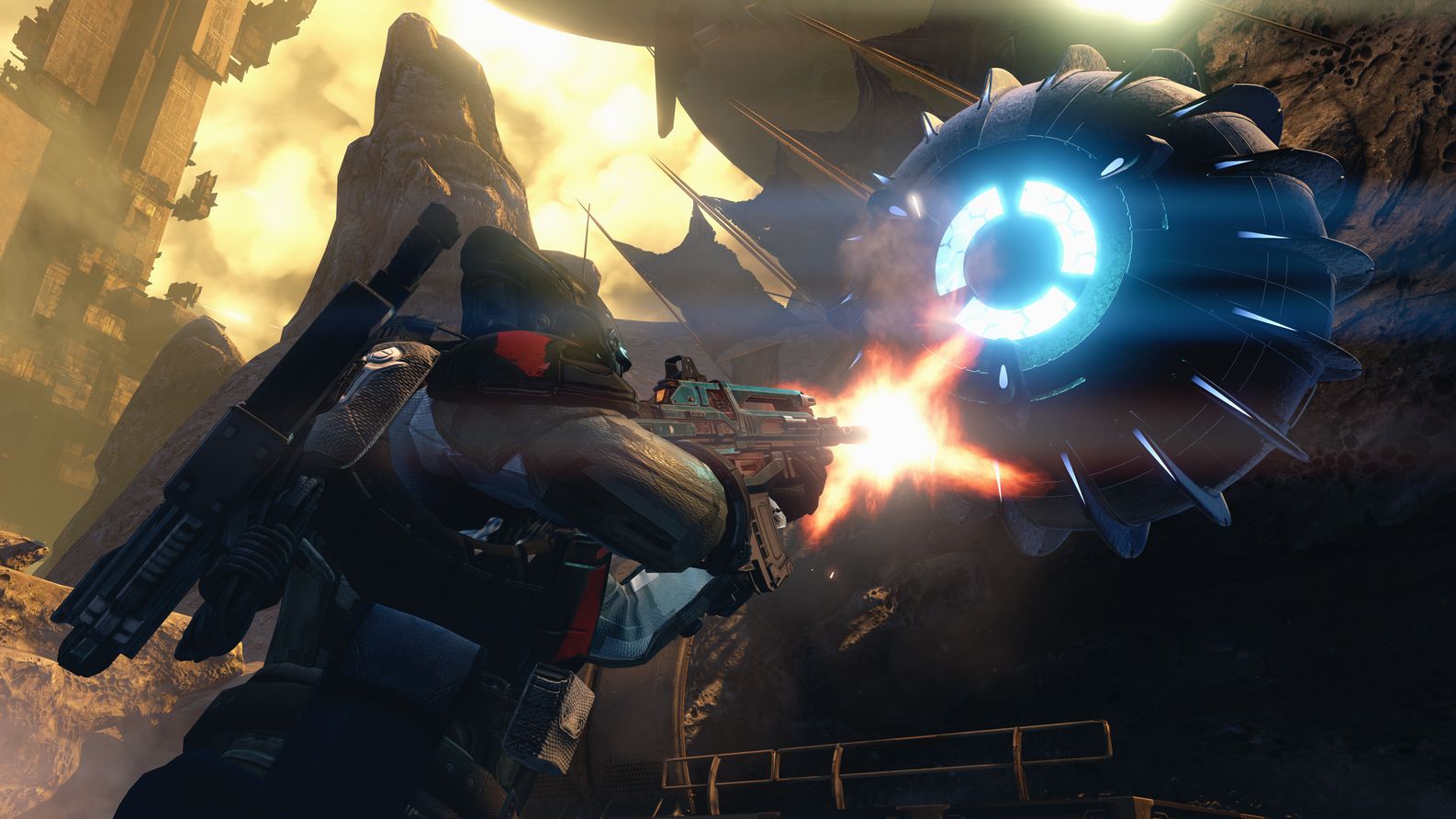
There’s no healing
Chris: This might be an odd thing to call out, but Destiny’s cooperative design works so well precisely because there’s no reliable way for players to heal one another. You can revive one another, and doing so confers a bonus shield for a few seconds, but this is always about recovering from a setback: keeping each other alive isn’t a part of the game’s core loop.
This prevents there from being a support role in the way that MMO players are used to, and encourages teamplay of a different sort. Here, a cooperative-minded player will be engaged in crowd control, clearance, generating resources, setting up defenses, and so on: and all of this is optional, with none of the mandatory dependency enforced by healer-tank-damage systems.
Healing is a degenerate game system in a lot of contexts because it gives the player party an inflated effective health pool that has to be accounted for in game design: I feel like it makes MMOs much more static than they could be. In Destiny, particularly in PvE, not getting hit is more important than mitigating damage. This creates a co-op game where agility and twitch skill trumps armour, where every player in the party gets to engage in the same high-stakes game of cat-and-mouse with a tough foe on the same terms.
PC Gamer is the global authority on PC games—starting in 1993 with the magazine, and then in 2010 with this website you're currently reading. We have writers across the US, Canada, UK and Australia, who you can read about here.
Keep up to date with the most important stories and the best deals, as picked by the PC Gamer team.
You are now subscribed
Your newsletter sign-up was successful
Want to add more newsletters?

Every Friday
GamesRadar+
Your weekly update on everything you could ever want to know about the games you already love, games we know you're going to love in the near future, and tales from the communities that surround them.

Every Thursday
GTA 6 O'clock
Our special GTA 6 newsletter, with breaking news, insider info, and rumor analysis from the award-winning GTA 6 O'clock experts.

Every Friday
Knowledge
From the creators of Edge: A weekly videogame industry newsletter with analysis from expert writers, guidance from professionals, and insight into what's on the horizon.

Every Thursday
The Setup
Hardware nerds unite, sign up to our free tech newsletter for a weekly digest of the hottest new tech, the latest gadgets on the test bench, and much more.

Every Wednesday
Switch 2 Spotlight
Sign up to our new Switch 2 newsletter, where we bring you the latest talking points on Nintendo's new console each week, bring you up to date on the news, and recommend what games to play.

Every Saturday
The Watchlist
Subscribe for a weekly digest of the movie and TV news that matters, direct to your inbox. From first-look trailers, interviews, reviews and explainers, we've got you covered.

Once a month
SFX
Get sneak previews, exclusive competitions and details of special events each month!


